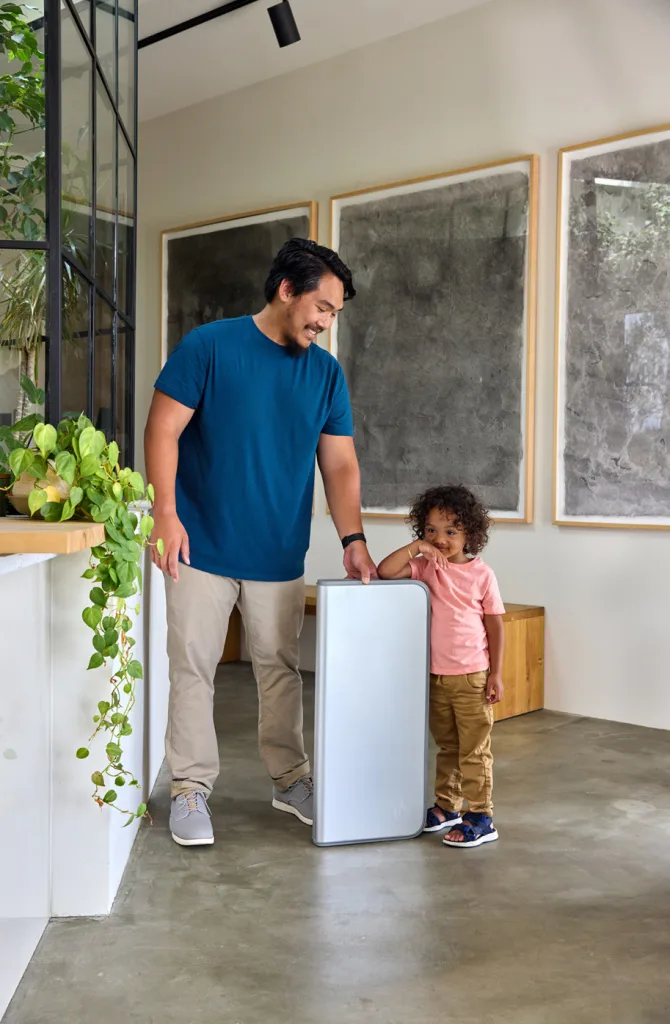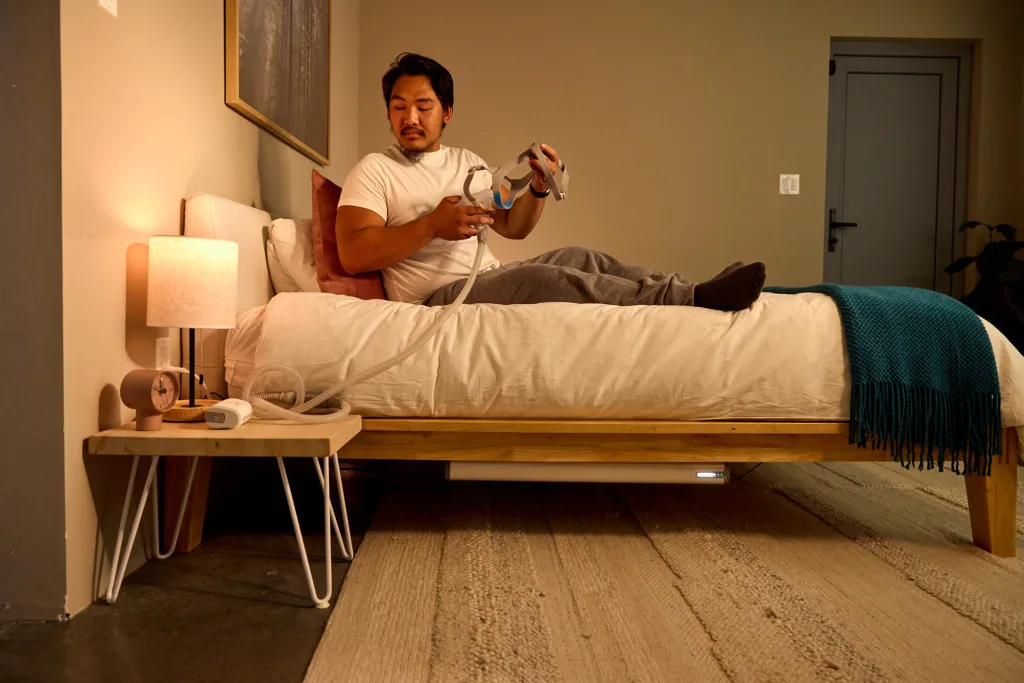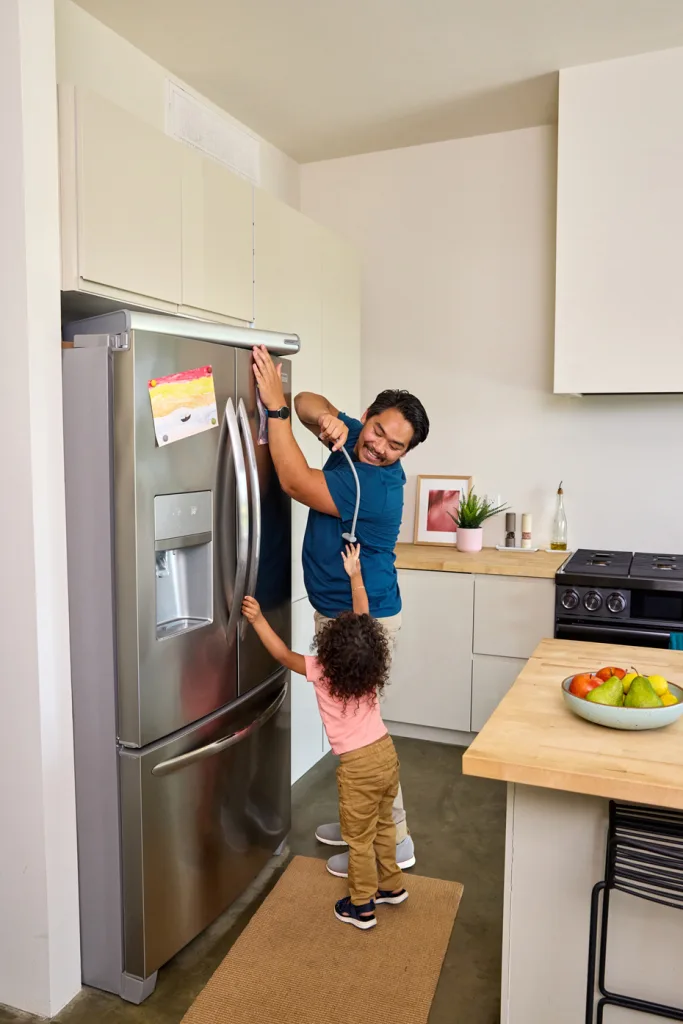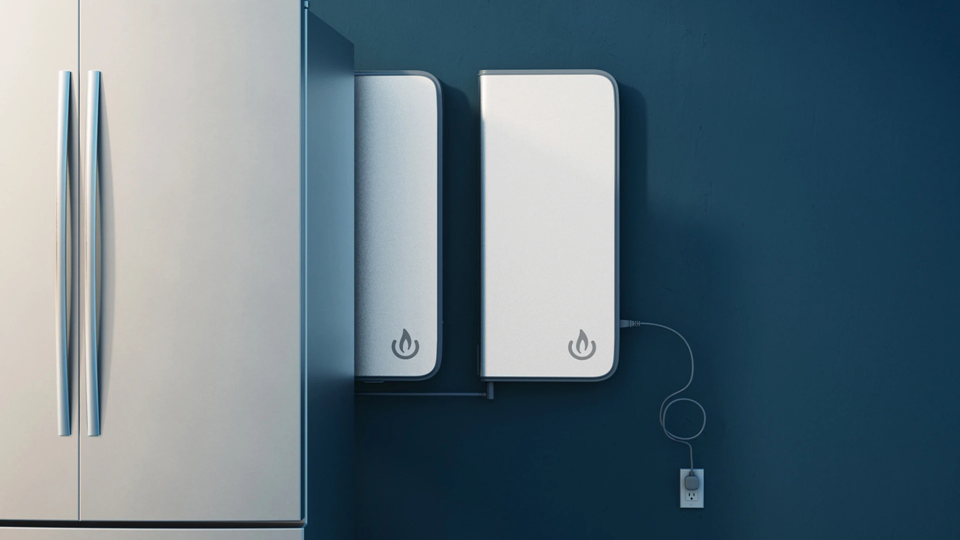This sleek, low-cost battery will keep your power on if the grid goes down
September 18, 2024
This sleek, low-cost battery will keep your power on if the grid goes down
A new backup battery from BioLite is slim enough to fit behind your fridge—and much cheaper than other home battery systems.
BY Adele Peters
If you live in a place where climate change is making power outages more common—that is, basically anywhere on the planet—you might have considered buying a home battery system. But typical battery backup tech is expensive, ranging from around $10,000 to $20,000. And it’s not a DIY project; you’d need an electrician to install it.
A new product takes a different approach: Rather than installing a system for your whole house, you can buy a set of slim batteries that can squeeze into critical locations, like behind your refrigerator. A set of two costs $2,999, with a 35% discount at launch and eligibility for an additional 30% tax credit. To set up the system, you just have to hang it up and plug it into an existing outlet, and then plug your fridge or other appliances into the battery. If a storm or wildfire shuts down the grid, your devices automatically switch from grid power to the battery.

“If you can hang a flat-screen TV on your wall, you can mount one of these things behind your fridge,” says Ryan Gist, VP of product at BioLite, the company that designed the technology. (Full disclosure: I worked at BioLite briefly more than a decade ago, when the startup had just launched.) Installation takes around half an hour.
The startup, known for making off-grid energy products for camping and the developing world—like a camp stove that can double as a phone charger—recognized that there weren’t great options on the market for backup power.

Portable generators, running on diesel or gas, are noisy, polluting, and can’t be used inside. (Large standby generators, designed to power a whole house, can sometimes cost as much as a full battery system, and aren’t climate-friendly.) Large portable lithium-ion power stations, like a version that BioLite also sells for camping, are heavy and awkward to move around, and have to be kept charged to be ready for use.
The new product, called Backup, was designed to be as small as possible. “We designed each of these modules to be very high efficiency, and we used some of the most energy-dense cells that we could get our hands on,” Gist says. “That leads to a product that’s very compact and slim.” The battery uses lithium iron phosphate chemistry, the safest option to avoid fires.
A single module, at 1.5 kilowatt-hours, is big enough to provide backup power for a home office or a nursery; one battery alone sells for $1,999. Two of the batteries can power a fridge for a couple of days, along with other kitchen appliances. The kit comes with a power strip that can stick to the side of a refrigerator, so you can plug in your phone or laptop.

The size of the modules was deliberate: If you buy two, for a total of 3 kilowatt-hours of energy storage, you can qualify for a 30% tax credit available through the Inflation Reduction Act.
Unlike a full home battery system, BioLite’s batteries can’t pull power from solar panels on your roof, though the company sells portable solar panels that can be set up to keep the battery running in an extended outage.
An app tracks the power supply and sends a notification if the power goes out, letting you know that the battery has automatically started powering any devices that are plugged into it. If you live in an area with higher electricity rates at certain times of day, you can also use the app to control when the battery charges, helping reduce your power bill. Utilities may eventually also partner with the company to offer “demand response” programs that reward customers for running on battery power when demand on the electric grid is highest.
Backup launched on Kickstarter today. BioLite plans to begin shipping the product to customers next spring.
ABOUT THE AUTHOR
Fast Company
(9)



